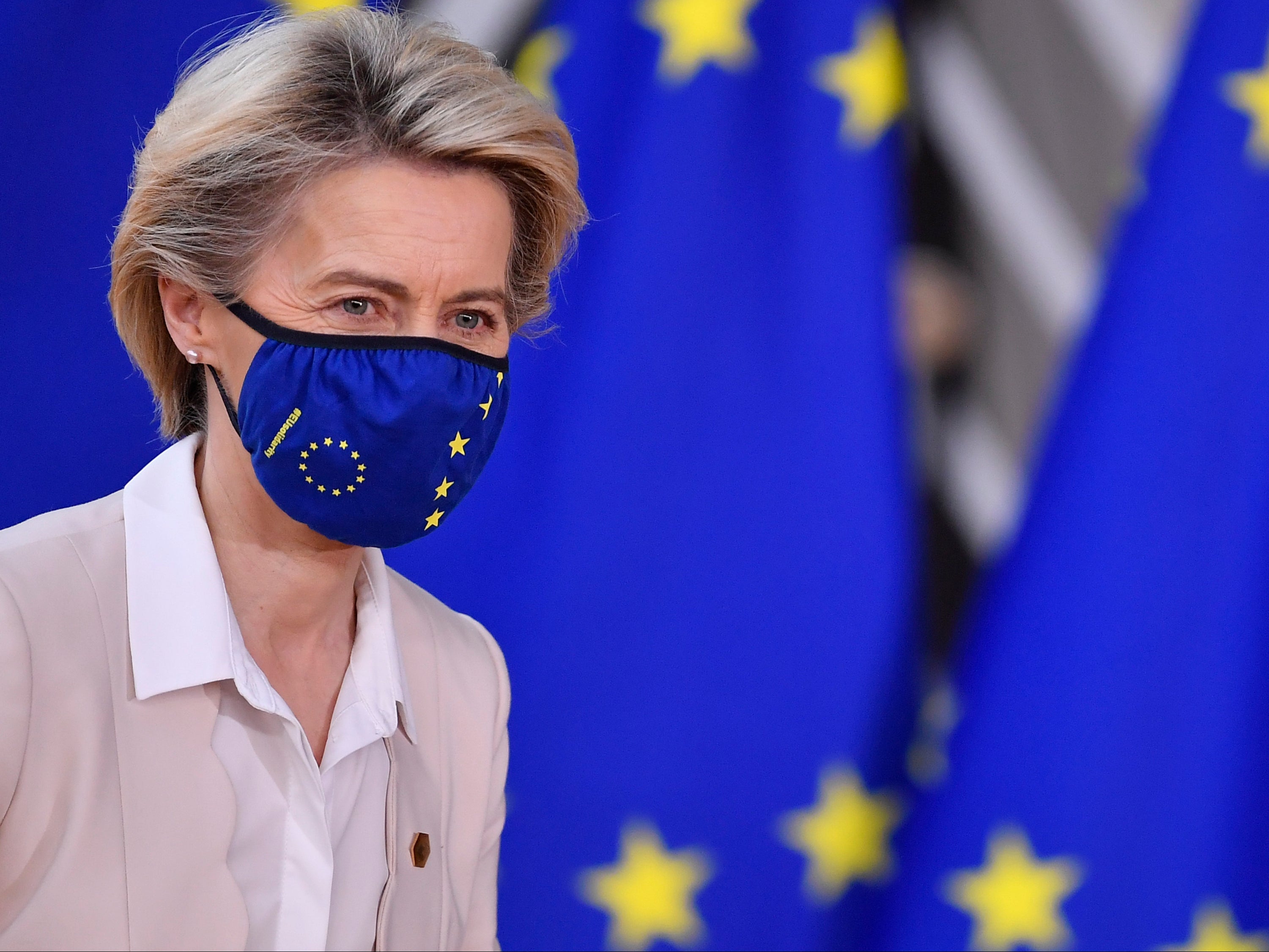This website uses cookies so that we can provide you with the best user experience possible. Cookie information is stored in your browser and performs functions such as recognising you when you return to our website and helping our team to understand which sections of the website you find most interesting and useful.

EU leaders have agreed to cut greenhouse gas emissions by 55 per cent by 2030, when compared to levels in 1990.
The new pledge is a stepping stone towards the trading bloc’s long-term goal of reaching net-zero emissions by 2050.
Ursula von der Leyen, president of the European Commission, tweeted: “Europe will reduce emissions by at least 55 per cent by 2030. It puts us on a clear path towards climate neutrality in 2050.”
Charles Michel, European Council president, added: “Europe is the leader in the fight against climate change.”
The decision came after an all-nighter finale to a two-day summit, which was stalled by clashes between wealthier EU states pushing for greater climate ambition and lower-income countries in central and eastern Europe that have historically been reliant on burning coal.
The final text of the deal pledges to offer financial support to the 10 lower-income EU member states so that they can “modernise their energy systems and improve energy efficiency”.
These countries include Bulgaria, Croatia, the Czech Republic, Estonia, Hungary, Latvia, Lithuania, Poland, Romania and Slovakia.
The tougher climate target comes just one day before the UK and France are due to host a climate action summit, a key “kick-off event” for the upcoming UN talks in Glasgow next year.
Held on the five-year anniversary of the Paris Agreement, the event is likely to see world leaders from across the world pledging to up their short-term targets for tackling the climate crisis.
The EU’s new target is a “signal” to other countries taking part in the summit that the bloc “sees its future prosperity and stability in a green transition”, said Jennifer Tollman, senior policy advisor at E3G, a global climate think tank.
“This is not the finishing line for European climate leadership,” she said.
“Instead it is the foundation for the EU to credibly put forward a proactive global agenda for shaping the rules of the emerging zero carbon economy.”
The final deal still needs to get through the European Parliament, which has previously supported a more ambitious 60 per cent emissions cut.
Prof Johan Rockström, director of the Potsdam Institute for Climate Impact Research in Germany, said that today’s target is the start of a long journey towards net-zero emissions for the EU.
“The EU pledge of carbon neutrality by 2050 requires large transformative changes, with overall emissions reducing by some 6 per cent per year,” he said.
“This will require large innovations, behavioral change, restructuring sectors and supply chains. Given that evidence increasingly shows that zero-carbon development is beneficial for the economy, jobs, health and resilience, there is a chance that the EU may exceed its own pledges. This will very likely be necessary.”
On Twitter, Dr Glen Peters, research director of the Center for International Climate Research (CICERO) in Norway, also said the current trends suggested the EU could be set to “meet and beat” its new 2030 pledge.
He said: “Changes are happening in the energy sector, with a rising EU-ETS price. The challenges will be reigning in transport emissions (oil) & turning the corner on gas.”
Prices on the EU’s Emissions Trading Scheme (EU-ETS) have been rising steadily for the past two years, making it more cost-effective to reduce greenhouse gas emissions.



 Africana55 Radio
Africana55 Radio 
